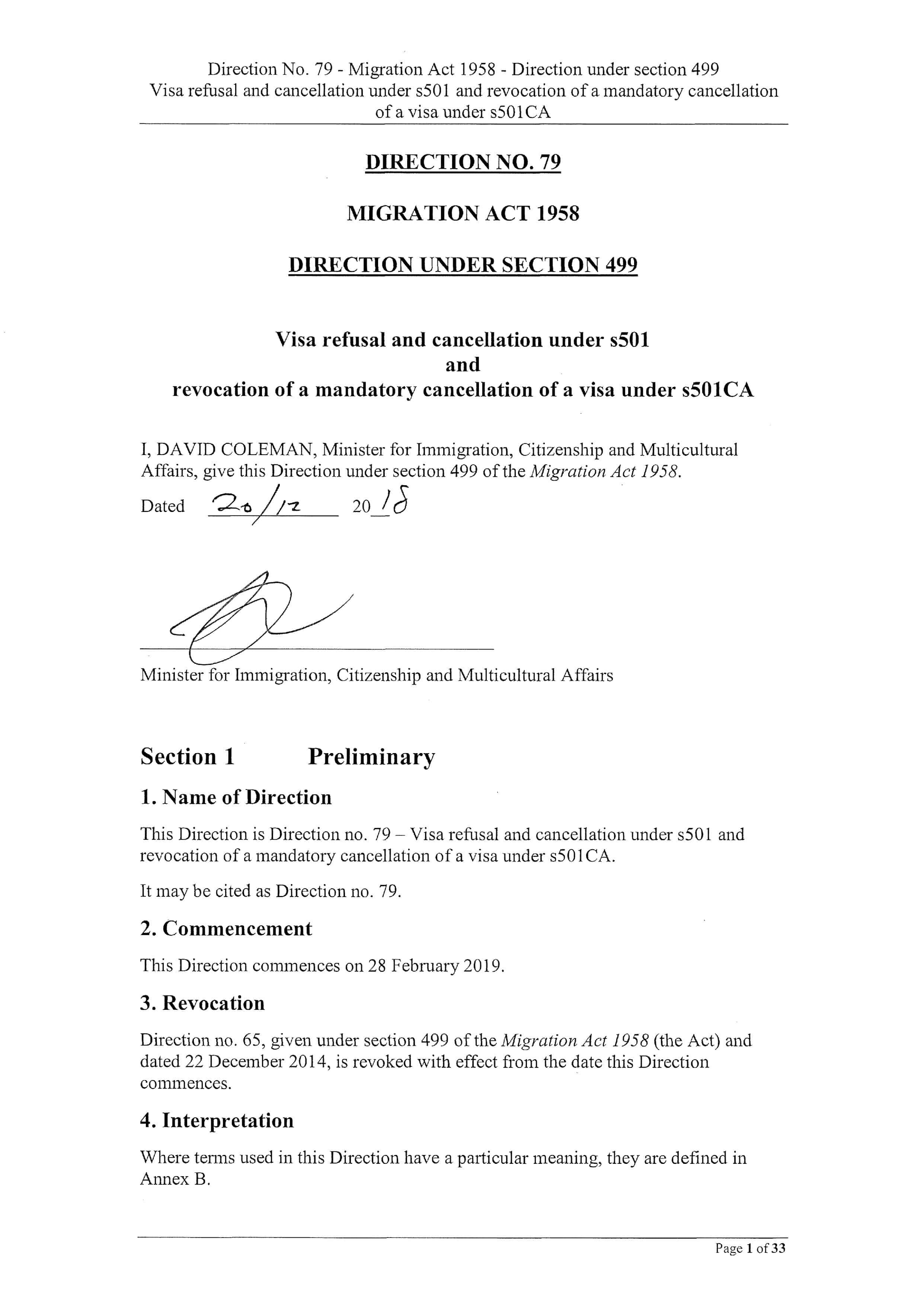Blogged by Jennifer Samuta
and Rachel Tomassen
Picture this. You’ve just received a letter from the Department of Home Affairs, saying that your visa has been cancelled. If that seems nightmarish and something you cannot even imagine, here’s an illustration:
Obviously, you’re scared..stressed….confused – who knows what will happen next? Can you fight this? Is there any hope? Will you be deported? How long do you have? What is the process? Your mind, no doubt, will be a whirlwind of questions and your heart a sea of emotions!
If you’ve been given a Notice of visa cancellation under s 501(3A) of the Migration Act 1958, what does it mean?
It means that your visa has been subject to mandatory cancellation– your visa has been automatically cancelled. The Minister for Immigration can, and must, cancel your visa under s 501(3A) of the Migration Act when you meet boththe following criteria:
1. You fail to pass the “character test”. This means that you either:
a. Have a “substantial criminal record”; or
b. Have been convicted of child sex offences; and
2. You are currently incarcerated on a full-time basis.
You can have a “substantial criminal record” if you have been sentenced to a term of imprisonment of 12 months or more. This might also include if you have been sentenced to multiple terms of imprisonment which add up to 12 months.
Then, as soon as you go to jail, you are incarcerated on a full-time basis. Your visa is automatically cancelled under s 501(3A) and there is no certainty on which day of your sentence- you must just know and be prepared to receive that letter (see pic above).
So your visa has been cancelled under s 501(3A). Now what?
There is hope - something can be done!
If your visa has been cancelled under s 501(3A), it is possible to apply to the Department and ask them to revoke the mandatory cancellation of your visa. This is called a request for revocation and is a process which basically asks the Minister to reconsider the cancellation (note: only certain considerations can be made - see our post on Ministerial Direction 79 here). If you are successful, your visa will be reinstated.
But how do you make a request for revocation?
STEP 1: Act quickly.
You only have 28 days to send the Department your request for revocation. If you have no idea what you are doing, the sooner you can get a lawyer the better.
If the Department receives your request afterthe 28-day time period, they will not consider your request for revocation.
There is no fee to lodge this request for revocation.
You can send the request to the Department in three ways:
- Via email at 501Revocations@homeaffairs.gov.au;
- Via fax at 03 9235 3626; or
- Via post at the address below.
National Character Consideration Centre
Department of Home Affairs
GPO Box 2241
Melbourne, VIC 3001
(Please take into account how long your mail may take to get to the Department when you are thinking about when to send the request!)
STEP 2: Fill out the Revocation Request Form.
You can find this form enclosed with the notice of visa cancellation that was sent to you by the Department. Fill it out and include it in the package you send to the Department.
STEP 3: Fill out the Personal Circumstances Form.
This form is also enclosed with the notice of visa cancellation sent to you by the Department. Fill it out as much as you can, even if you intend to get a lawyer to help you. Your lawyer is going to need as much information as they can get!
When you are requesting a revocation of your mandatory visa cancellation, you are essentially trying to tell the Department:
“I know that I have failed the character test, but there is another good reason why I should not be deported!”
What is another good reason? Well, it’s more like many good reasons. These good reasons are outlined in Ministerial Direction 79, which is a list of factors the Department has to take into account when making their decision. A great overview of Direction 79 can be found here.
Often, we have found that our clients’ best arguments that they have a good reason to stay have included:
- Having minor children who rely upon them for support, and whose relationship with you would be damaged if you were deported, or their lives would be significantly disrupted if they were permanently separated from you;
- Feeling genuinely remorseful about your conduct, having undertaken a lot of serious rehabilitation efforts and courses, and having a low chance of re-offending - find yourself a qualified psychologist who can assess you and provide a written report about your risk;
- If you have lived in Australia for a long time;
- If it would be very difficult for you to return to your country of citizenship; and
- If you have made other positive contributions to your family and your community.
These are only some of the reasons, but this should give you a taste of what kind of information you need to tell the Department, or your lawyer when they are helping you draft a Statement to include in your request for revocation.
Essentially, you’re trying to convince the Department that you should still remain in Australia because you will be responsible and make a positive contribution to Australian society. Your very best reasons why you should stay in Australia need to go in your request for revocation.
Often, you will need a lot of information to evidence this claim. Try to get as much information as you can from your friends and family, as well as letters of support. This might take a lot of time, so you’ll need to act quickly.
Understand the Consequences
If you thought the information above was scary enough, the consequences of a visa cancellation is even scarier. As your visa has been cancelled, you no longer hold a substantive visa, and you are considered an unlawful non-citizen. If the visa cancellation decision is not revoked before you are released from prison, you will be detained in immigration detention following your release.
There are four major consequences of a visa cancellation under s 501(3A), being:
1. you are prohibited from applying for other visas while you remain in Australia (there are exceptions for applications for protection and bridging visas in some circumstances);
2. any other visa applications made by you are deemed to be refused and all other visas held by you are deemed to be cancelled (however, if the visa cancellation decision is revoked, any visa applications or cancelled visas will be reinstated);
3. you will be permanently excluded from entering Australia; and
4. a record will be attached to your immigration file, which may cause difficulties with any international travel in the future (as many countries will not admit people who have been removed from another country).
Take home message: Visa cancellation under s 501(3A) of the Migration Act isn’t the end of the road. Submit your request for revocation to the Department within 28 days, and give yourself the best chance you can to see the light at the end of the tunnel. And most importantly, know that it is possible to have a visa cancellation decision revoked. The graph below represents the number of finalised revocation requests from 1 July 2018 to 30 June 2019. There is hope!
A ‘Revoked’ decision results in a visa being reinstated, whereas a ‘Not Revoked’ outcome upholds the cancellation decision. Source: Department of Home Affairs website.
For more information, feel free to contact us for a chat with one of our understanding, experienced and compassionate lawyers.
Disclaimer: The contents do not constitute legal advice, are not intended to be a substitute for legal advice and should not be relied upon as such. You should seek legal advice or other professional advice in relation to any particular matters you may have.




![TABLE 1: VISA DECISIONS UNDER SECTION 501 Source: Department of Home Affairs,Submission to Joint Standing Committee on Migration, Inquiry into review processes associated with visa cancellations made on criminal grounds, [Submission no. 29], 11 May …](https://images.squarespace-cdn.com/content/v1/58d4ad8f2994cafbe9efde16/1583071246616-SS29X4VT6TPXE4XEHKTM/Section+501+Visa+Cancellations)

